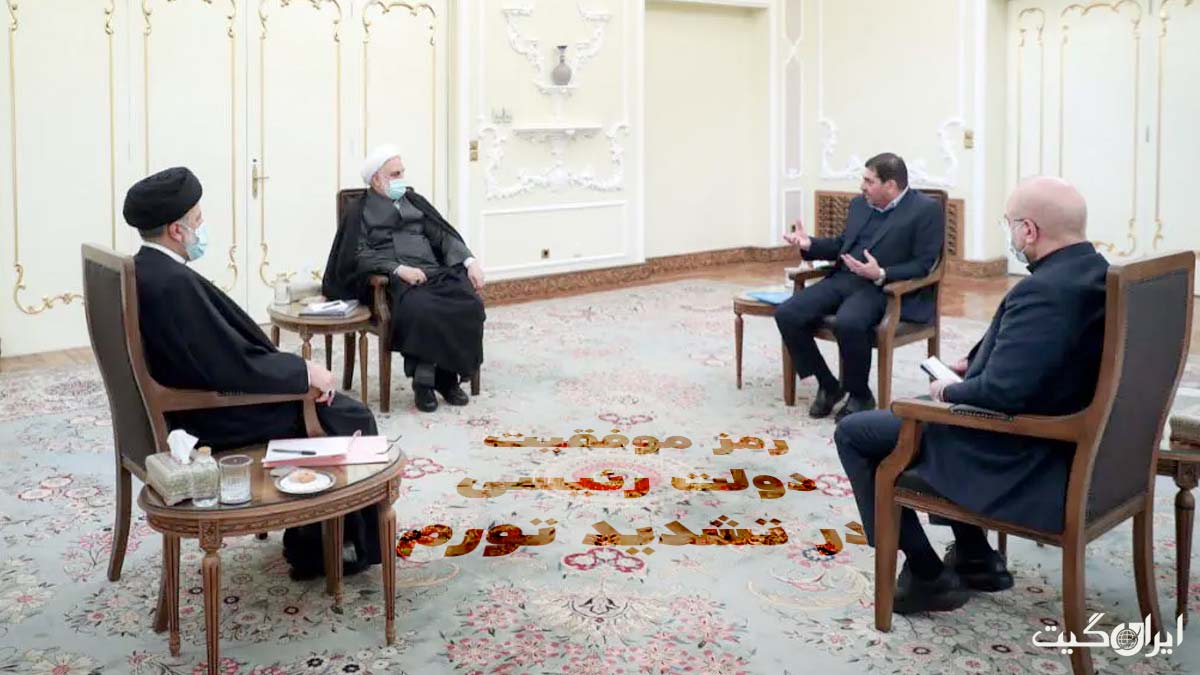The Key to Raisi’s Government Success in Intensifying Inflation Part One
The key to Raisi’s government success in intensifying inflation: According to Iran Gate, the thirteenth government has recently unveiled what it calls the monetization of government resources and assets as a solution to compensate for the budget deficit. Economists have raised serious criticisms not only about the controversial details of this plan but also about its overall concept. The Ministry of Economy of the thirteenth government has also announced that the government intends to take steps to monetize government assets and properties to reduce costs and provide resources to compensate for the deficit.
In this context, it has been decided to thoroughly examine the process of creating a deficit and securing the necessary resources for the government to compensate for it. Ultimately, the issue of securing resources through the sale of assets can be addressed, and whether the term monetization exists in the common terminology of economics, and what the government’s intention is in proposing and executing this plan, and what consequences it will have for the people. In the first part of this report, the creation of the budget deficit and the common methods to compensate for it are explained.
Budget Deficit: The Illegitimate Child of Governments
Governments, in various governance structures, are always faced with the problem of imbalance between expenses and revenues, which leads to a budget deficit. This issue is recognized as the biggest problem for governments in organizing financial situations. To compensate for such a heavy imbalance, there have always been several options available to governments, which are divided into inflationary and non-inflationary categories.
In general, governments resort to borrowing in such situations, but this borrowing is done in two ways: one from public resources and the central bank’s treasury, and the other direct borrowing from the people. There are significant differences between these two methods, which can have wide-ranging implications for economies with different structures.
Direct Borrowing by the Government from the People
The process of governments borrowing from the people requires elements that the Ebrahim Raisi government currently lacks. The first element is public trust in the governance, especially the government. This trust has been further damaged in light of the 2020 elections and the events following the tragic death of Mahsa Amini in the custody of Tehran’s morality police.
For this reason, many believe that the thirteenth government’s borrowing plan from the people, which is carried out through treasury bonds, is not feasible. In other words, people do not have enough trust in the government to benefit from the profits of these bonds and help the government take steps to compensate for the budget deficit. This trust has been so damaged that it seems the Ebrahim Raisi government is completely ignoring this option.
Government Borrowing from the Central Bank
The simplest and least troublesome method of borrowing for governments has always been borrowing from the central bank. This action is carried out without the public being aware, and no one is informed about its details. This is why economists always emphasize the necessity of the central bank’s independence in the country’s policymaking structure. In other words, this independence can act as a barrier against the government’s unconventional and harmful demands.
In countries with democratic governance structures, the central bank is established as a completely independent institution. This is why governments do not have the opportunity to dip into the central bank’s coffers and cannot recklessly borrow from this policymaking institution.
The restrictions that laws impose on such governments are put in place considering the consequences of borrowing, as unaccounted borrowing can lead to a phenomenon known among people as money printing. Unbacked money printing can lead to an increase in the monetary base and consequently liquidity. These actions and reactions ultimately result in the creation of high-powered money and intensify inflation.
In other words, it can be said that by borrowing from the central bank, the government quietly and overnight steals from citizens because the government resorts to actions to cover its heavy expenses that lead to the continuous devaluation of people’s money. For this reason, in various schools of thought, inflation is also known as the government’s overnight theft from the people.
Which Option Will Raisi Choose?
The recent 20-month track record of the thirteenth government has shown that Ebrahim Raisi’s cabinet has preferred to choose the easiest way to cover its budget deficit. In other words, the government has weakened the central bank’s position to facilitate seamless borrowing from this supervisory institution.
A look at the performance of the thirteenth cabinet also confirms this claim that the government has resorted to borrowing from the central bank to compensate for the 2020 and 2021 budget imbalances. This action has directly acted as an engine driving inflation and has continuously reduced the value of the national currency. Inflation, which, according to the average, has gradually shrunk and has unprecedentedly and indescribably increased the extent of poverty in the country.

